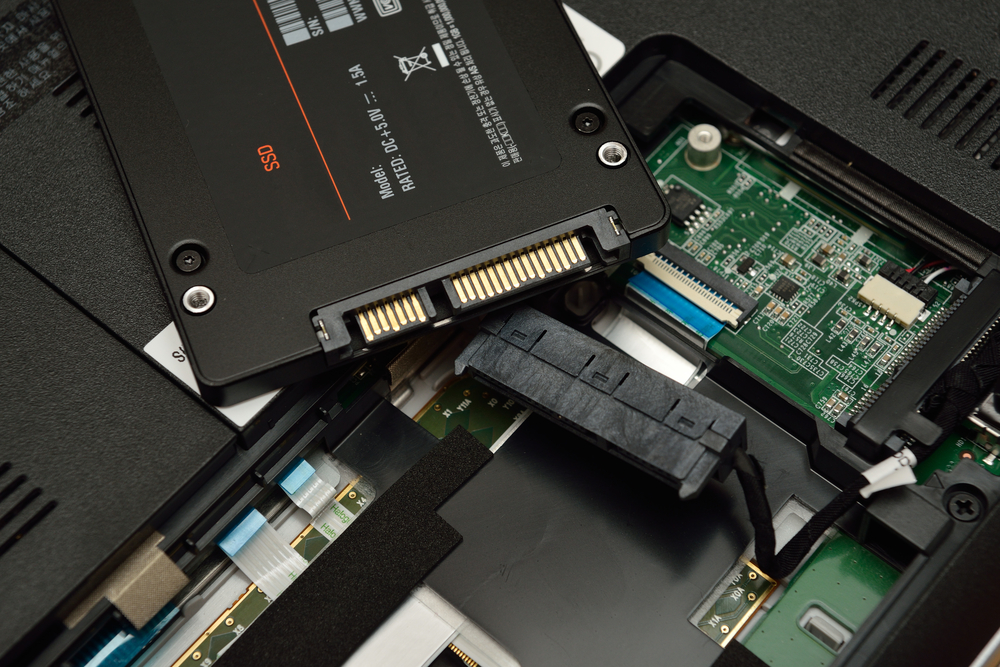SSD is currently the best option to have storage space along with access and processing speed. Read the article, on how to know which SSD is compatible with my laptop and take this step towards the best performance of your device without having any kind of unforeseen surprises.
- How to check the health of your laptop battery in Windows 11
- How to know the speed of your computer’s RAM memory
- How to close the laptop lid without shutting down or suspending the system
How is compatibility defined?
In short, SSD compatibility with laptops or desktops is defined by the same technical aspect. Compatibility between SSD and computer is defined by the type of hard disk interface. SSD interface types include mSATA, U.2, SATA Express, SATA, M.2, PCI-E, etc. Currently, SATA and M.2 SSDs are the main ones for personal computers.
Each motherboard model supports certain technologies and protocols to use SSD, so the specifications that should be sought are the motherboard support and the space available in the laptop’s “case”, due to space restrictions, some models will not be supported.
In this case, the simplest and most expensive way out would be to invest in an external SSD with values higher than the internal versions.
Laptop compatible SSD
The best source of information, of course, is still the laptop manual. To check if the SSD is compatible with the laptop, you must first find out the type of interface of the laptop’s hard drive.
It is difficult to disassemble the device, but that is the function of the manuals. Generally speaking, every laptop comes with a manual that records all device specifications, including the hard drive interface type.
If the manual is not at hand, you can take the time to check the model’s specifications via the manufacturers’ page or websites. You can check the detailed specifications of the laptop on many websites, such as official brand websites (Lenovo, ASUS, etc.), or online marketplaces (Amazon, eBay) and some IT websites (CNET, ZDNet, Hardware Secrets).
Samsung Laptop NP270E5K
I’ll give an example of how I did the research to choose the ideal SSD for my laptop. The first thing was to check the model’s technical sheet. As I no longer had the manual, I looked for the model name at the bottom of the laptop and took a picture.
I searched the internet for the template — spelt it out exactly as in the title — and quickly found a datasheet site. From the factory, the information on the type of HD it uses is SATA III, accepting this configuration I looked for an SSD of the same family.
As for the size of the physical space, it is important to observe and choose an SSD model that fits in the area reserved for storage.
I didn’t have to pay attention to that because I didn’t replace it, I kept my normal SATA III HDD, and added the SSD that became the main system — I removed the DVD drive from the laptop and installed the SSD in the space, it fits quietly.
In the vast majority of cases, a SATA or M.2 SSD will be needed, we can start from this principle to identify which one will be the best for the laptop.
Does SSD Capacity Matter?
SSD capacity must be taken into account, prices vary with the item. For this reason, attention should be paid to your real need for space. The importance increases in case the SSD is the only storage device of the laptop.
My tip is to stay away from the 128 GB SSDs, they are too small even for use in partnership with an HDD, in addition to having a reduced speed due to the smaller number of memory modules.
The best cost-benefit option is to stay between 250 GB and 500 GB, for use in partnership with another HDD. The capacity is enough to install the entire main system on the SSD, in addition to the most used games or software that need better performance.
If the investment value is not so important and the objective is only to use a single SSD storage, opt for the largest capacity that the system and the pocket can support.
What is the best SSD technology?
Definitely, the best technology we have on the market for SSDs is M2. They take up less space and are much higher in terms of reading and writing speed than personal computers.
